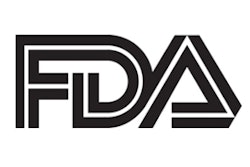Earlier this month, President Obama called on Congress to reinstate presidential authority to reorganize the government, a power that has been granted to every U.S. president from Hoover to Reagan — with the exception of Ford.
According to the White House, the president, if granted the ability, would first consolidate six agencies — the U.S. Department of Commerce, the Small Business Administration, the Office of the U.S. Trade Representative (USTR), the Export-Import Bank, the Overseas Private Investment Corporation and the U.S. Trade and Development Agency — into one department.
The Obama administration says such consolidation is designed to curb “unnecessary waste and duplication,” with the added benefit of “saving taxpayer dollars.”
Trade Concerns
While no one denies these benefits, Congress and industry representatives are reportedly concerned about merging the USTR with other agencies. Senate Finance Committee Chairman Max Baucus and House Ways and Means Committee Chairman Dave Camp issued the following joint statement:
“… We are concerned about the impact that the President’s proposal could have on the ability of the United States to aggressively open new markets to American-made goods and services and create U.S. jobs… We certainly need to look for ways to reduce government and cut taxes, but not at the expense of programs that are helping businesses, ranchers and farmers create jobs and expand our economy.”
The National Cattlemen’s Beef Association (NCBA) also raised concerns, arguing that the USTR “serves an important role reducing trade barriers and advocating for free and fair trade for all sectors of the U.S. economy.” More specifically, the NCBA says the USTR has been successful in expanding exports of U.S. commodities, including beef.
Food Safety Concerns
According to The Hagstrom Report, Obama’s second order of business would be merging the Food Safety and Inspection Service (FSIS) of the Department of Agriculture (USDA) with the food regulatory portion of the Food and Drug Administration (FDA).
Food safety experts have supported the idea of a single food safety agency for some time, and the Government Accountability Office (GAO) suggested creating one food safety entity might be a good solution to the “fragmentation” of the current food safety system.
In its March 2011 report, the GAO reviewed the effectiveness of the Food Safety Working Group (FSWG), established by President Obama in March 2009. The FSWG was tasked with creating food safety goals to coordinate federal efforts to improve the safety of the nation’s food system. While the GAO review indicated that the FSWG was a “positive first step,” the GAO suggested that Congress consider alternatives, including a possible consolidation of food safety efforts into one agency.
Merging the FDA and the FSIS may sound like the most effective solution, but it certainly would not be an easy fix. Many food safety advocates are concerned about the federal government’s budget crunch, with agencies like the FDA and USDA facing possible cuts.
Another issue at hand is division of budgets for inspections. The FSIS has a significantly larger budget than the FDA, because FSIS inspectors are required to be present in every U.S. meat plant. The FDA is responsible for the oversight of most other foods, but has a much smaller amount of cash at its disposal. For this reason, the FDA only has the ability to inspect approximately 1 percent of food manufacturers each year.
Whether or not Congress is prepared, the Obama administration has made it clear that it intends to continue to push for reorganization authority, and the food safety system will likely be affected down the road if this executive power is granted. But establishing a single food safety body will, no doubt, be difficult, both financially and logistically.
What do you think about the possibility of a single food safety entity? Would it help or hurt the industry? Let me know your thoughts at [email protected].


















